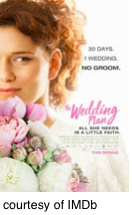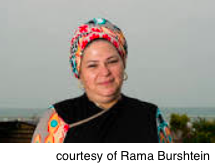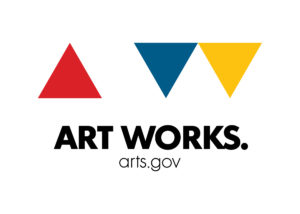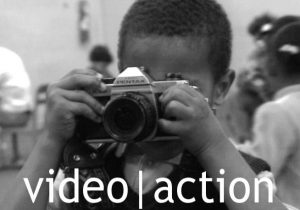by Flo Dwek, transcribed by Word Wizards
 Rama Burshtein is the award-winning writer, director and producer of FILL THE VOID. Her latest feature film, THE WEDDING PLAN, comes to theaters on May 26. Originally titled as THROUGH THE WALL, the film had its Israeli premiere in 2016. This comedic drama stars Noa Koler as the sprightly but serious Michal, a 30-something, unconventional Orthodox woman (she runs a mobile petting zoo) who has only a month to plan her wedding—and find a groom. This engaging, woman-centric film is remarkable on many levels, testing its characters and viewers alike on matters probing the deepest realms of one’s heart and faith. Burshtein’s original, well paced script and strong direction keeps the drama flowing and the comedy perking. The mischievous Yos (Oz Zehavi) and loyal Shimi (Amos Tamam)—the two easy-on-the-eyes guys in her life, round out the romantic, yet utterly chaste contours of this memorable film.
Rama Burshtein is the award-winning writer, director and producer of FILL THE VOID. Her latest feature film, THE WEDDING PLAN, comes to theaters on May 26. Originally titled as THROUGH THE WALL, the film had its Israeli premiere in 2016. This comedic drama stars Noa Koler as the sprightly but serious Michal, a 30-something, unconventional Orthodox woman (she runs a mobile petting zoo) who has only a month to plan her wedding—and find a groom. This engaging, woman-centric film is remarkable on many levels, testing its characters and viewers alike on matters probing the deepest realms of one’s heart and faith. Burshtein’s original, well paced script and strong direction keeps the drama flowing and the comedy perking. The mischievous Yos (Oz Zehavi) and loyal Shimi (Amos Tamam)—the two easy-on-the-eyes guys in her life, round out the romantic, yet utterly chaste contours of this memorable film.
THE WEDDING PLAN
Opens May 26 in selected theaters nationwide
In Hebrew with English subtitles
Run Time: 110 minutes

Q: Good morning! May I call you Rama?
A: Sure.
Q: Rama, you both wrote and directed your latest film, THE WEDDING PLAN, better known in Israel as THROUGH THE WALL. How did the story for this film come about?
A: I think it started without the story. It just started with a thought, an idea of what would I like to say. And what I wanted to say is that we lack hope and we’re deeply in despair. I’m speaking from my own world, of course. Everyone is different, but that’s what I felt. And I needed to tell a tale that does that shift, from despair to hope. And from there, it started… In the end, you know, when you look back, you don’t even know how the idea came about, but you know it’s right. Then suddenly, you have a scene and you go with that, and then another, and another…
Q: And you don’t know how it’s going to end until it ends, and we don’t want to tell the viewers.
A: Right.
Q: And it’s really very exciting, and rewarding, to witness this evolution of hope, unfolding on screen.
A: Thank you.
Q: Both of your films, FILL THE VOID and THE WEDDING PLAN, revolve around women and marriage and their deep-seated, strictly Orthodox faith. As a strictly Orthodox Jewish woman who makes one-of-a-kind films, do you consider yourself truly conservative in your thinking? Or are you, deep down, an independent, original thinker–and perhaps, even a feminist at heart?
A: I think the problem starts by saying there’s a difference between Orthodox thinking and original thinking–because I am very Orthodox, yet I am very original. But in my vocabulary and in my religion and in my Bible that type of thinking is a necessity. I think everyone has his own power, his own thing that he or she came to do, and if you’re not in touch with that, you will not do what you’re here to do. But I know I am here to do films. And I think there is a truth for everyone else–there is something that only that [one] person can do. So, it’s very important to be very original. And, where I come from, you have to be very original to be Orthodox.
Q: That’s a very interesting point of view. So… keeping your originality in mind, how do you account for your amazing success in having gone “through the wall” yourself – since you come from such a closed community. Tell us about that.
A: Well, first of all, I was not always Orthodox. You know, it’s a choice that I made at the age of 27. I was totally secular and became religious; I chose it eyes wide open. From the age of 27 until the age of 48 I didn’t really do films, and it was totally okay for me. I was building my home, raising my four kids. They have like a year and a half between them. It was very intense. And in the middle of it all, I wrote a novel, which I published, but I didn’t think I would like films.
Q: In Israel?
A: Yeah. And when I made FILL THE VOID, it was a miracle to do it because when you set out to get funding, to get money for a film, you have to know what to do, how to do it right. I had all the wrong reasons to get the money. I wasn’t that young, I was religious, and still, I got it. So, the miracle started there, and I didn’t know it would be such a success. I was just going step by step. I didn’t know.
Q: You believed and went with it, just let it happen…
A: And when it did, it was just… I don’t know. There’s no way to explain it. Then when you go to make a second project in the shadow of a very successful first project (which is a whole other thing to talk about), it’s all about how you managed to make the second project and not fail. Usually, you are bound to fail–because you don’t really hear your own voice. You hear the voice of expectations. It’s very, very hard to put all the voices in their places, to get back to what you wanted to say. I think that I was privileged because I’m not 20 and I’m doing that now, and I’m ready. I mean, I’m going to be a grandmother any minute now!
Q: Mazel Tov!
A: Thank you so much, Amen. So I feel that it has been my privilege, that I’ve started this thing not to establish a career, but to make films. For me, it’s like a gift that was given to me. It could be taken away any minute. The fact that it happened again is an even bigger miracle than the first one–and who knows? Maybe a third can happen too, who knows? Or maybe a third will not happen, and that’s okay. I think that’s my secret.
Q: So, your faith is very, very strong because of the first miracle and the second one, now, with this film.
A: I think my faith is very, very strong because this is the most important thing in my life, yeah.
Q: That’s wonderful to hear, and it really resonates in your films. In THE WEDDING PLAN, the main character, Michal, whose faith is very strong, encounters so many different men in her quest to find the best husband. What criteria did you apply to deem them worthy or unworthy for Michal?
A: Well, you know, someone said jokingly to change the title to ALL THE GORGEOUS MEN ARE FOR ME. It was very important to me that when Michal looks for the right guy, that all the guys looked amazing–that you would want each and every one of them to be the right one. That any one of them will be accepted. It was very, very important. And, you know, Michal is like the girl next door. She’s not exactly Julia Roberts, the girl that will carry a romantic comedy in such a way.
Q: Yeah, she’s not exactly a glamour queen.
A: Not a glamour queen, right… but, you know, it’s so amazing to see because it never comes up. Everyone totally accepts the fact that all those gorgeous guys will go for her. Why would they do that? Because she’s so sincere and she’s modeling the truth. And when you model the truth, you become beautiful; you become glamorous. And even a rock star, a gorgeous looking guy, you know, even with all the girls after him, he will go for you–for a minute, though. Not for eternity, but he will go for you and we’ll believe that.
Q: Because she’s genuine.
A: Because she’s genuine. You see, for me, it was very important to connect to the fact that when you’re genuine, there’s no way you will be alone.
Q: That’s a beautiful way to look at it. And one of them, the rock star himself, actually falls in love in with her.
A: Right. Yeah.
Q: So, he sees that.
A: Yes. And he asks, “How come?” Even when we casted Noa Koler for the role of Michal, everyone around me–my producer, my casting director–they were not sure that she was the one. I mean, who would believe that this guy and that guy and this other guy would all go for her? Nobody. It was very hard to tell. It’s very obvious now, but it was not obvious when we started, and it’s like I saw that she went through that process herself. The actress herself went through that process [in real life].
Q: So through acting out her search for the right guy, she ended up knowing herself and Michal even better. And did a fabulous job because of it.
A: Right. She got a leading role. It’s her first leading role.
Q: Wow.
A: Today Noa is not here because she’s shooting. She has a leading role in a very big show in Israel now, but she actually started her career at the age of 35.
Q: Amazing.
A: That’s amazing, and it’s because she went through that process. So, back to the man for me: my criteria was more that they each, in their own way, fall in love with her than to bring something of their own. They were supposed to accept her as she is. We’re not even going to talk [too much] about it because it’s like the spoiler, but everyone had a role there.
Q: So, her sincerity and her genuine nature actually evolved on screen as she became that character more and more.
A: Yeah.
Q: And everyone fell in love with her.
A: Everyone.
Q: The cast, the crew, everybody loved her?
A: Everyone, everyone, yeah, fell in love with her. That’s the beautiful part of it.
Q: She comes across beautiful on screen.
A: And she’s beautiful.
Q: Inside and out, I would say.
A: Yes, she’s beautiful. It’s like she’s there to show you what it looks like when you truly believe in someone.
Q: When you believe in something or someone?
A: In someone. You see, the fact that I believed in her didn’t do it. I didn’t have that power. For Michal, to see someone believing in her in such a way did that.
Q: So in a sense, was Michal your avatar, with her deep belief, her strong faith?
A: Yeah, totally, and it was like it happened in real life, you know.
Q: That’s a wonderful back story.
A: It was the story and the process that we all went through… on set. The crew and characters alike–we all went through that process.
Q: It’s wonderful to know that. You see the film in a different light after you know that. So, I must ask: how do you personally reconcile and strike a balance between the creative, open-ended art of film and your strict observance of Halacha (Jewish religious laws)?
A: For me, Halacha gives me my wings–not my brakes.
Q: They’re your wings?
A: They are my wings.
Q: Tell us more about that.
A: If I looked for ways to get around the Halacha, that would be really stupid. I’m supposed to understand why the Halacha is good and the power of it. That’s my faith, and that’s what I need to do. I think that in my next project. I’ll even take it a step further. For example, they [the male and female actors] are not allowed to touch in my films. That actually creates a lot of passion. Passion is not in touching. Passion is right before you touch. And passion is something that we’re really addicted to, even more than satisfaction. We’re addicted to passion. This is what we want. We want to want something. And we always are passionate for something that we don’t have. If we have it, then maybe we love it, but we’re not passionate about it. So, I think that I’m selling the higher drug. You know what I’m saying?
Q: Yes, absolutely. I do.
A: Okay. For me, it’s not, “Oh, I wish I could go with, you know, touching and so on”… no, I don’t. So for me, these are the things that make me think and make me be more creative.
Q: And it creates an undercurrent on screen, doesn’t it, of very deep emotion and passion.
A: Right.
Q: Because it’s all in the gestures. It’s all in the eyes and the looks?
A: It’s all in the will and the desire and not in the satisfaction. And it’s a secret. It’s a secret to be in the world of desire and not in the world of satisfaction.
Q: Moving to a broader context, what do you think are the biggest challenges today facing strictly Orthodox women in Israel, in the United States? What are their biggest challenges?
A: You mean, how are they different from those who are not religious–like the Orthodox, themselves?
Q: Yes, the Orthodox themselves. The strictly Orthodox who live in a closed community. Particularly for the women. What do you think is their deepest challenge now?
A: I think the deepest challenge is the fact that their role has expanded. They work and they take care of the house. In the past, it was fine for you to just take care of the house, which is a full time job when you have, like, eight kids and you don’t have to work. But today, they combine a lot of that, house and outside work. In the secular world, there are more like two, maybe three kids [per family].
Q: Right.
A: Yeah. But they [the Orthodox] will have, like, eight, and sometimes, twelve kids. That’s a lot of kids! To do anything else with that is a very big challenge.
Q: So, more and more of these women with all these children are also working now outside the home?
A: Yeah.
Q: That’s incredible.
A: A lot of them do. Yeah, a lot of them do.
Q: So, both parents are working now more and more, with this new generation?
A: Yes. That’s true, yes.
Q: Interesting. And do you know if the very people that you are depicting on screen ever get to see your movies because of the restrictions of Halacha law? How do they get to see these films that you make?
A: Well, a lot of them don’t because they won’t go to the cinema. But a lot of them do.
Q: Are they allowed to watch at home? If you gave them a viewing link could they watch it?
A: They could watch it.
Q: They can watch it on Netflix or at home, right?
A: Yes, it’s a clean thing.
Q: Of course.
A: But some of them do go to the cinema; sometimes they will even go to a different town and go into the cinema and it will be, like, the first movie they’ve ever seen.
Q: Wow.
A: And it will be a double experience or maybe a triple experience for them. And the story is important, but ultimately, you know, the film is not made for them. If I had to do it for them, it would be in a different language, in the cinema language. Even that would be different because they don’t watch a lot. In a way, the way they see films, it’s still like seven years ago. You know, we have a lot of flight hours in terms of watching films, and we already get all kinds of storytelling that we couldn’t get 20 years ago. I mean, if you would see a film now that was made, say, 20 years ago, it would be too slow, it’s not moving. You know, we’re changing all the time. But since they haven’t logged those film hours, they would see it very, very differently. But my audience is made up mostly of non-religious Jews and non-Jews. This is my audience. These are the people that go and see my film more than others.
Q: So, what is the main reason you make films? Are you trying to show a secular audience what the Orthodox community is like?
A: I would have to say that my thing is to show the beauty of God.
Q: The beauty of God powers your films?
A: Yeah. A lot of Christian people watch my films, you know. It’s the beauty of God. It’s the beauty of a believer. It’s the beauty of the world. It’s not about modeling the world. It’s about the fact that this world exists without any discussion with another world, okay? It’s not about someone trying to get into the community who doesn’t belong, or someone from the community trying to get out of the community. This is not the discussion. This is the community. We’re all inside. Nobody wants to break the rules. Nobody wants to get out, and we have our own tale. Just that factor is very important to me. Just to say that we are not here in comparison to something else. We’re here because we are here.
Q: I see.
A: That’s important for me.
Q: And to close, getting back to your original message of hope, can you tie all that into the beauty of God that you want to show?
A: You know, in God’s world (and everyone could call God by different names) but in God’s world, it means this is not a random world. When I say “God’s world” that’s what I mean. It’s not a random world. It’s very precise. Everything that happens has a reason and a purpose. And in that world, everything is possible and it’s not our power that makes it possible. That’s a big difference. It’s not like you say positive thinking creates reality. That’s not what I believe in.
Q: What do you believe?
A: I believe that there’s a Creator that can do everything, and the positive thinking is me believing He can do that. But sometimes we don’t believe that. I mean, even religious people who believe in that say, “Yes, of course. He can do everything, except for my problems. My problems will not be solved. I’m bigger than God with my problems. He will not really save me, solve them for me, help me”. And to open up that feeling that says, yes, the Holocaust can happen, but a wedding can happen too. Everything can happen in God’s world. And to be open to that, is to be a wide thinker.
Q: That’s the hope?
A: That’s the hope.
Q: Thank you so much. And much joy to you and your family. All the best.
A: Thank you. You too. Beautiful questions.

















